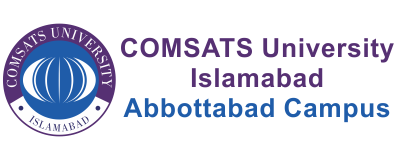Department of Civil Engineering is equipped with state of the art labs suitable for undergraduate experiments and MS, PhD research work. It also aims to provide professional testing services to the construction industry. Following are the laboratories at our Department:
- Concrete Lab
- Structural Lab
- Engineering Mechanics Lab
- Fluid Mechanics Lab
- Surveying Lab
- Soil Mechanics Lab
- Materials Testing Lab
- Transportation Lab
- Environmental Engineering Lab
- Computer Lab
Concrete Laboratory
This laboratory practically demonstrates all the concepts taught in the concrete theory courses to the students through a series of experiments. This includes concrete mixing, sampling, workability, finess, setting time, creep, strength, the effect of curing etc. Variety of standard equipment like a concrete mixer, slump apparatus, different furnaces, vibrating tables, sieve sets, baline finess apparatus etc is available.
Structural Laboratory
This lab introduces students to basic properties of structural materials and behavior of simple structural elements and systems through a series of experiments. Students learn experimental technique, data collection, reduction and analysis, and presentation of results. Work related to these natural phenomena is performed such as tensile loading, compression loading, punching, high impact loads. All modern equipment like universal testing machine, impact testing machine, beam loading apparatus, load cells, strain gauges, euler strut theory demonstration unit, torsion loading apparatus are available.
Engineering Mechanics Laboratory
The purpose of Engineering Mechanics Laboratory is to study the mechanical behavior of the structures using theoretical, numerical and experimental methods. It will help the students to understand the application of the theory that he has studied in practice by performing experiments and verifying results. This curriculum will develop effective skills to observe experimental data and to analyze the results, and it will build their confidence in performing the utilization of the principle of mechanics in Civil Engineering works. Variety of equipment like Hooks Law apparatus, Centre of gravity apparatus, Friction apparatus, Hanging rope apparatus, Jib crane apparatus, Principal of moment apparatus, Concurrent forces apparatus, Fly wheel apparatus, Beam loading apparatus, Roof truss apparatus, Two Arm Lever apparatus, Balance of Force apparatus are available.
Fluid Mechanics Laboratory
This laboratory provides exposures to students of what are fluid and fluid properties. Laboratory experiments are set up so that they can be performed to complement the theoretical information taught in the fluid mechanics lecture course. The general objective of the course entails that the students understand the properties and fundamental basic laws of fluid, to identify safe operating practices and requirements for laboratory experiments, measure hydrostatic forces on a submerged bodies, measure flow rate in a pipe and to apply the basic tools to the solution of elementary problems with a clear practical orientation. Equipment available in the Laboratory are Hydraulics Bench, Dead Weight pressure tester, Meta centric height apparatus, Impact of jet apparatus, Laminar flow apparatus, Hydrostatic Panel, Weirs and Notches, Flow measurement apparatus, Bends and pipe fitting apparatus, Osborne Reynolds apparatus, Hydrostatic pressure apparatus, Bernoulli’s theorem demonstration Unit.
Mechanics of Solid
This lab introduces students to basic properties of structural materials and behavior of simple structural elements and systems through a series of experiments. Students learn experimental technique, data collection, reduction and analysis, and presentation of results. Work related to these natural phenomena is performed such as tensile loading, compression loading, punching, high impact loads. All modern equipments like universal testing machine, impact testing machine, beam loading apparatus, load cells, strain gauges, euler strut theory demonstration unit, torsion loading apparatus are available.
Soil Mechanics Laboratory
The experiments included in soil mechanics labs run parallel to the theory course and give the students practical idea about the behavior of soil in different loading and moisture conditions along with the material properties. These tests include soil gradation/sieve analysis, moisture determination, Atterberg’s limits, permeability, consolidation and compaction. The soil lab has all the equipments required to perform the basic soil testing. these include coarse and fine sieve sets, water bath, oven, hydrometers, sand cones, core cutters, specific gravity bottles, Casagrande’s apparatus, plastic limit apparatus, shrinkage limit set, speedy moisture testers, Standard and modified proctor test apparatus, constant and falling head permeameter and consolidometer.
Apart from these basic equipments, the civil engineering department is in the process of buying some very sophisticated soil testing equipment in order to broaden the horizon of our testing capabilities from basic soil testing to commercial testing for complex soil analyses and designs. These equipments include Standard penetration tester, Unconfined compression tester, Direct shear tester and Tri-axial compression testing system.
Survey Laboratory
The survey lab established in civil engineering department has all the equipment needed to perform the surveying or leveling of any kind, thus enabling the students to use and familiarize themselves with all the modern day surveying and leveling instruments and techniques. The survey is performed in the open to give students a practical understanding about carrying out a survey in the field. The equipments include engineering chains, metallic tapes, leveling staffs, arrows, staff rods, Prismatic and surveyor’s compass, EDMs, GPS, Plane tables, Levels, Theodolites and other accessories needed to perform these tests.
The department is in process of buying Total Stations for survey lab which would enhance the surveying capabilities and efficiency by reducing operation time and eliminating observer fatigue.
Transportation Laboratory
The transportation lab will be included in the coming semester. The equipment purchase will be completed before the start of the semester. The students will learn about the material testing procedures of various materials used in pavement construction, namely soil, aggregate, bitumen bituminous mix, cement and cement concrete.
Some of the equipments including water bath, penetrometer, sieve sets, specific gravity tester, and oven have been purchased. The remaining equipments include Marshall compression tester, ductilometer, viscometer, marshall sampler compactor and extruder, digital thermostatic controller drum mixer, centrifuge extractor, flash and fire point apparatus, ring and ball apparatus and briquette moulds.

